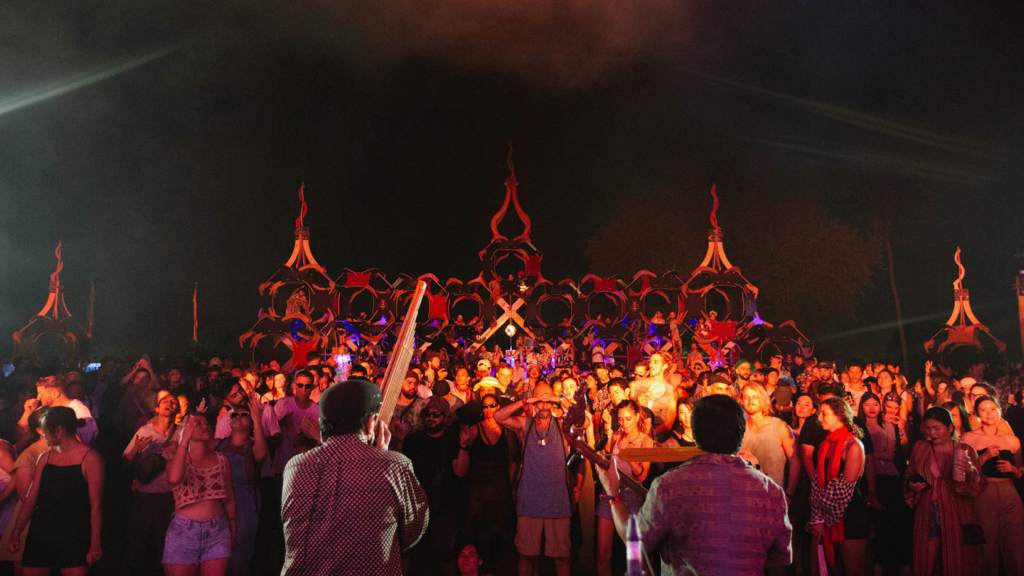Published
Wed, Feb 7, 2024, 02:00
- We spoke with DJs, producers and label managers in Southeast Asia and beyond about best practices.

Bangkok shop Zudrangma Records is well known for its collection of Thai folk music genres like molam and luk thung. Over the years, it's become an essential stop for visiting artists such as Antal, Nightmares on Wax and Peggy Gou. On a sweltering December day, a customer struck up a conversation with staff about an old Thai record, inquiring into the lyrics and the artist's rural background.
They were the sort of deep questions an ethnomusicologist might ask. Researching the social and cultural context behind music is typically reserved for scholars and reissue labels, but what about artists? As transmitters of sonic knowledge, should DJs and producers do their due diligence on music from a particular culture before playing or sampling it? Or is it enough to simply like a rhythm or melody?
This topic feels particularly relevant when streaming platforms are providing unprecedented access to niche genres, and as more forms of localised dance music, from raptor house to kwaito, are getting rinsed in clubs around the world. Speaking to Resident Advisor at a panel discussion during Thailand's Wonderfruit festival, three artists—Sunju Hargun, Chris Menist and Di Linh—discussed their respective approaches to musical homework. The general consensus? Investigating a sound's backstory isn't compulsory, but for full-time artists who are serious about their craft, it certainly adds value.
Hargun is cofounder of Bangkok label Siamese Twins, which specialises in what it calls "tribally rooted" dub, darkwave and psychedelic ambient from artists in East and Southeast Asia. Highly influenced by folk music from the region, Hargun enjoys the research process.
"There's so much history to discover about the relationship between the creator and the environment that brought it to life; each has its own story and adventures," he said at the panel. "While being informed is helpful, it's also essential to feel the spirit of the music."
Tash LC runs Club Yeke, a London-based label, club night and radio show exploring sounds from the African and Latin American diaspora. Speaking to RA over the phone, she described how context can enrich your relationship with music.
"I enjoy researching music, understanding histories, the makings of contemporary sounds and the kind of journeys that genres have gone on to become what they are now," she said. The more people learn, "the more respect is given to the genres. I think it does a massive disservice to so much of this music when it becomes a bit of a fad or when interest dies down."
Background knowledge can also expand public perceptions of music. More fans today are interested in the identity of a producer and the communities they're part of, Tash LC added. "Not everybody approaches music in the same way–some are more interested in culture and the stories behind the music and who an artist is." Connecting with music outside of the musical elements has several benefits, she continued, "it sort of reframes the possibilities of music."
Probing into the history and socio-cultural climate of a particular record or genre is particularly necessary when there's a religious or political element, noted Menist, a writer, DJ and cofounder of the Paradise Bangkok Molam International Band. "To hear music like that in a party environment, some people might feel uncomfortable or consider it inappropriate," he said at the panel. "For me, it might just be a nice melody but for someone else, their response is going to be different–some consideration and awareness is definitely important in this regard."
In 2017, UK techno DJ Dax J experienced this first-hand when he played a short clip of the Muslim call to prayer during a set in Tunisia. In a statement, he said he was drawn to the "musicality and the beauty of the vocal," but his actions sparked a massive backlash.
Research, though, is just one part of engaging with culturally relevant music. For producers and musicians looking to incorporate these elements into their practice, it can be tricky to balance authenticity with experimentation.
The Paradise Bangkok Molam International Band often fuses molam with dub and reggae–a creative process that Menist describes as "less of an intellectual exercise and more feelings-based." The ensemble's multi-faceted reinterpretations of Thai folk music aren't intentional, he noted. "We just thought it sounded nice to our ears, it doesn't sound forced." There are certain genre synergies though, he admitted. "There's obviously no historical relationship between modern molam and reggae but in some respects, they're both genres born out of struggle, out of that clash between the rural and urban."
At Siamese Twins, the goal is creating "imaginary worlds where cultural sounds coexist with the weird and wonderful," Hargun explained. For his own productions, he likes changing the texture and tone of spiritual recordings via sound design tools and pedals. His Khun Fluff alias heavily relies on audio editing, FX and time-stretching samples.
"To me, there's no right or wrong with sampling traditional sounds," he said. "But rather it boils down to execution, taste, personality, respect and care."
Photo Credit: Wonderfruit